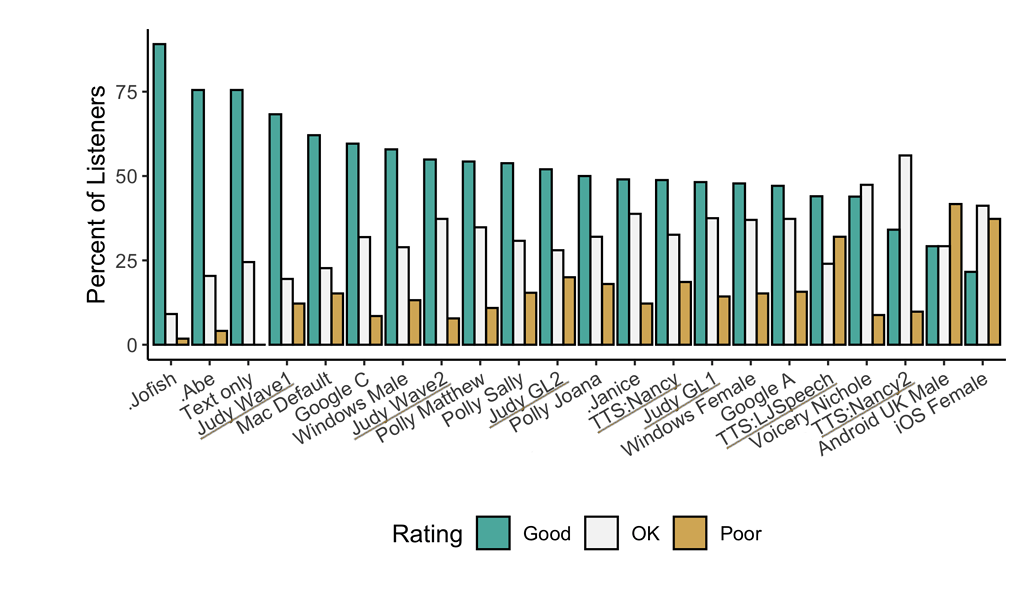🐸TTS is a library for advanced Text-to-Speech generation. It's built on the latest research, was designed to achieve the best trade-off among ease-of-training, speed and quality. 🐸TTS comes with pretrained models, tools for measuring dataset quality and already used in 20+ languages for products and research projects.
📰 Subscribe to 🐸Coqui.ai Newsletter
📢 English Voice Samples and SoundCloud playlist
📄 Text-to-Speech paper collection
Please use our dedicated channels for questions and discussion. Help is much more valuable if it's shared publicly so that more people can benefit from it.
| Type | Platforms |
|---|---|
| 🚨 Bug Reports | GitHub Issue Tracker |
| 🎁 Feature Requests & Ideas | GitHub Issue Tracker |
| 👩💻 Usage Questions | Github Discussions |
| 🗯 General Discussion | Github Discussions or Gitter Room |
| Type | Links |
|---|---|
| 💼 Documentation | ReadTheDocs |
| 💾 Installation | TTS/README.md |
| 👩💻 Contributing | CONTRIBUTING.md |
| 📌 Road Map | Main Development Plans |
| 🚀 Released Models | TTS Releases and Experimental Models |
Underlined "TTS*" and "Judy*" are 🐸TTS models
- High-performance Deep Learning models for Text2Speech tasks.
- Text2Spec models (Tacotron, Tacotron2, Glow-TTS, SpeedySpeech).
- Speaker Encoder to compute speaker embeddings efficiently.
- Vocoder models (MelGAN, Multiband-MelGAN, GAN-TTS, ParallelWaveGAN, WaveGrad, WaveRNN)
- Fast and efficient model training.
- Detailed training logs on the terminal and Tensorboard.
- Support for Multi-speaker TTS.
- Efficient, flexible, lightweight but feature complete
Trainer API. - Ability to convert PyTorch models to Tensorflow 2.0 and TFLite for inference.
- Released and read-to-use models.
- Tools to curate Text2Speech datasets under
dataset_analysis. - Utilities to use and test your models.
- Modular (but not too much) code base enabling easy implementation of new ideas.
- Guided Attention: paper
- Forward Backward Decoding: paper
- Graves Attention: paper
- Double Decoder Consistency: blog
- Dynamic Convolutional Attention: paper
- MelGAN: paper
- MultiBandMelGAN: paper
- ParallelWaveGAN: paper
- GAN-TTS discriminators: paper
- WaveRNN: origin
- WaveGrad: paper
- HiFiGAN: paper
- UnivNet: paper
You can also help us implement more models.
🐸TTS is tested on Ubuntu 18.04 with python >= 3.6, < 3.9.
If you are only interested in synthesizing speech with the released 🐸TTS models, installing from PyPI is the easiest option.
pip install TTSBy default, this only installs the requirements for PyTorch. To install the tensorflow dependencies as well, use the tf extra.
pip install TTS[tf]If you plan to code or train models, clone 🐸TTS and install it locally.
git clone https://github.com/coqui-ai/TTS
pip install -e .[all,dev,notebooks,tf] # Select the relevant extrasIf you are on Ubuntu (Debian), you can also run following commands for installation.
$ make system-deps # intended to be used on Ubuntu (Debian). Let us know if you have a diffent OS.
$ make installIf you are on Windows, 👑@GuyPaddock wrote installation instructions here.
|- notebooks/ (Jupyter Notebooks for model evaluation, parameter selection and data analysis.)
|- utils/ (common utilities.)
|- TTS
|- bin/ (folder for all the executables.)
|- train*.py (train your target model.)
|- distribute.py (train your TTS model using Multiple GPUs.)
|- compute_statistics.py (compute dataset statistics for normalization.)
|- convert*.py (convert target torch model to TF.)
|- ...
|- tts/ (text to speech models)
|- layers/ (model layer definitions)
|- models/ (model definitions)
|- tf/ (Tensorflow 2 utilities and model implementations)
|- utils/ (model specific utilities.)
|- speaker_encoder/ (Speaker Encoder models.)
|- (same)
|- vocoder/ (Vocoder models.)
|- (same)


